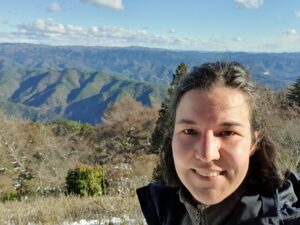
- Diese Veranstaltung hat bereits stattgefunden.
Vortrag von Anne-Sophie L. König, M.A.: „The so-called narite busoku problem: Understanding why the shortage of candidates for town and village assembly elections in Japan is worsening“

Since the nation-wide unified local elections in 2019, the buzz word narite busoku (shortage of candidates) has become common in news reports on Japan’s municipal election. This shortage consequently leads to a rise of uncontested elections – elections that end without voting as there are not more candidates than seats up for election. Both trends have become part of the public debate about dwindling voting rates of and interest in local elections in Japan. The issue is framed as narite busoku mondai (lack of candidates’ problem) in Japanese literature and media. From the first democratic local elections in Japan in 1947, there has always been a low percentage of uncontested winners among assembly members of town and village assemblies. Though uncontested elections are no new phenomenon, since the 2011 election cycle, the percentage of walkover winners is steadily increasing from 20.2 percent to its all-time high of 30.3 percent in 2023. In a liberal democracy, uncontested elections are problematic as competitiveness is undermined and a ’natural‘ exchange of politicians as well as an evaluation of a politician’s term through the ballot do no longer occur.
In my thesis project I want to find out how the lack of candidates in town and village assembly elections affects Japanese democracy and what kind of countermeasures are feasible and effective. To answer these questions, I identified the important actors involved in the political and academic debate surrounding narite busoku. I also conducted not only a documentary analysis but also fieldwork in form of semi-structured expert interviews and participant observation in 2022 and 2023 with a focus on municipalities in Nagano, Hokkaidō, and Kyōto prefectures. Through a preliminary content analysis of my data the following points become evident: 1) Though the cited reasons for the lack of candidates often overlap, the evidence they are based on is convincing to different degrees. 2) The plethora of solutions are either still untested, or do not show immediate results. 3) There is a gap between viable solutions discussed in academia and the central state, and the practice in the municipalities. In my thesis, I identify hurdles in the political system and imbalances in the debate that lead to the differences between these levels. In this talk, I will present first findings from the analysis of my fieldwork data focusing on reasons for narite busoku.
Anne-Sophie L. König is a doctoral student at Japan Center LMU Munich under the supervision of Prof. Dr. Gabriele Vogt and research associate in the DFG-funded project „Demography and Democracy: How Population Aging Alters Democracy – The Case of Japan“. Her research interests include local politics, quality of democracy, political multilevel system in Japan, demographic change and, state risk communication.
This is a hybrid event. For participation via Zoom, please register by following this link: https://lmu-munich.zoom-x.de/meeting/register/u5Urc-utrTsvE9I9V_GjcnyeqThqTN-e2dVx. After registration you will receive a confirmation mail with the participation link.
Location: Japan Center of the LMU, Seminar Building at the English Garden, Oettingenstr. 67, 80538 Munich, Room 151.